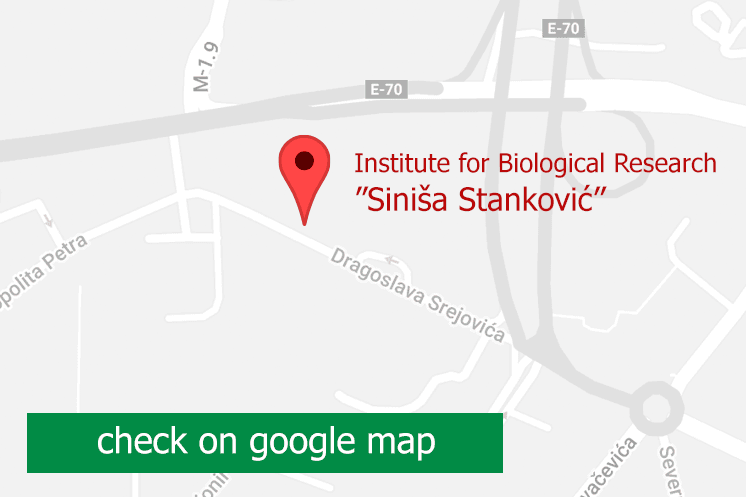
Dr. Ana Despotović
Research Associate
Dr. Ana Despotović
Ana Despotović graduated in 2016 (Molecular Biology and Physiology, Faculty of Biology, University of Belgrade). She defended her Master's thesis entitled "Synergistic antitumor effect of vitamins C and K3 on human glioblastoma cells U251 in vitro" and obtained M.Sc. degree in 2017 (Molecular Biology and Physiology, Faculty of Biology). In the same year, she started PhD studies, also at the Faculty of Biology, University of Belgrade.
Since 2018, Ana has been working as a researcher in the Department of Neurophysiology at the Institute for Biological Research "Siniša Stanković". In 2021, she obtained the title of research associate. In the period from 2018 to 2020, she was involved in the project "The role of autophagy in the regulation of tumor cell death" (173053) and in the period from 2018 to 2019 in the project "Modulation of intracellular energy balance-controlling signalling pathways in therapy of cancer and neuro-immuno-endocrine disorders" (III41025). Both projects were funded by the Ministry of Education, Science and Technological Development of the Republic of Serbia. As part of the bilateral cooperation project between the Republic of Serbia and the People's Republic of China "Investigation of the strontium carbonate and strontium fluoride addition to calcium-silicate dental cements: physico-chemical and biological characterisation" (451-02-818/2021-09/20), she stayed at institutes of the Fujian Medical University in China in April 2023.
Her scientific research is based on the monitoring of intracellular signals and the investigation of molecular mechanisms underlying the response of malignant cells to potential antitumor agents of different origins, with the aim of discovering new therapeutic approaches for the treatment of malignant diseases. Ana is also involved in the biocompatibility testing of bioactive materials for use in regenerative medicine as bone/dental replacement materials.
Ana is a member of the Society for Neuroscience Serbia (DNS), the Federation of European Neuroscience Societies (FENS), the Serbian Biological Society (SBD), the Society for Free Radical Research - Europe (SFRR-E), the Serbian Society for Mitochondrial and Free-Radical Physiology (SSMFRP), the Serbian Society for Molecular Biology (MolBioS), the Serbian Association for Cancer Research (SDIR) and the European Association for Cancer Research (EACR).











